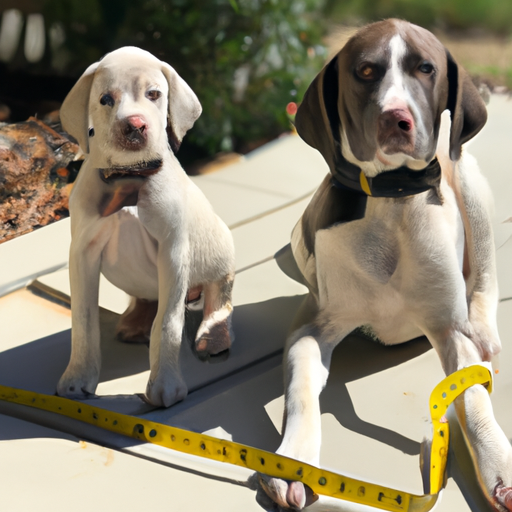As a caregiver to your beloved canine companion, you are bound to ask the question, “When do dogs stop growing?” This is a crucial aspect of dog ownership that can help you better understand your pet’s needs, especially in terms of nutrition and exercise.
Understanding the Growth of Dogs
Every breed of dog, from the smallest Chihuahua to the largest Great Dane, goes through a growth period. However, the duration and rate of this growth can vary widely.
- Small breeds generally reach their full size at a much younger age than larger breeds.
- Medium-sized breeds usually stop growing at around 12 to 15 months.
- Large and giant breeds can continue growing up until 24 months.
This growth is not only physical but also mental and emotional. Your dog’s behavior, understanding, and temperament will also mature during this period.
The Role of Breed in Growth
The breed of your dog plays a significant role in determining the timeline of their growth.
- Small Breeds: Small breeds like Poodles and Shih Tzus usually mature quickly, reaching their full size by 6-8 months.
- Medium Breeds: Medium breeds like Bulldogs and Basset Hounds take a bit longer, typically maturing by 12-15 months.
- Large Breeds: Large breeds like Golden Retrievers and German Shepherds can take up to 18 months.
- Giant Breeds: Giant breeds like Saint Bernards and Great Danes may take up to 24 months or even longer.
The Role of Nutrition in Growth
Nutrition is a critical factor in your dog’s growth and development. Providing the right balance of proteins, carbohydrates, fats, vitamins, and minerals is essential for their health and well-being.
- Puppies need a diet high in energy, protein, and calcium to support their rapid growth and bone development.
- As they mature, their nutritional needs change, and it’s crucial to transition to adult dog food at the right time to prevent obesity and other health problems.
The Role of Exercise in Growth
Exercise plays a vital role in your dog’s growth and development. Regular physical activity promotes muscle development and bone strength and helps maintain a healthy weight.
However, over-exercising a puppy can lead to joint issues later in life, especially in large and giant breeds. It’s essential to provide appropriate and controlled exercise for your growing pup.
The Role of Genetics in Growth
Just like in humans, genetics plays a significant role in how and when a dog stops growing.
- If the parents of your pup were large for their breed, it’s more likely that your dog will be the same.
- Conversely, if the parents were small, your pup would likely be smaller and possibly mature faster.
Tracking Your Dog’s Growth
Keeping track of your dog’s growth can help you spot any potential health issues early on. Regular vet check-ups are essential as they can monitor your dog’s growth and ensure they are developing correctly.
You can also keep a growth chart at home, documenting your puppy’s weight and height at regular intervals.
Dealing with Growth-Related Issues
Sometimes, dogs can face health issues related to their growth. These can include:
- Growing pains or Panosteitis: This is common in large and giant breeds and can cause limping and pain.
- Hip and elbow dysplasia: These are developmental disorders that can lead to arthritis and lameness.
- Obesity: Overfeeding can lead to excessive weight gain, leading to numerous health issues.
If you notice any signs of these issues, it’s essential to consult with your vet immediately.
Frequently Asked Questions
1. When Should I Switch My Puppy to Adult Dog Food?
Typically, you should switch your puppy to adult dog food when they reach about 90% of their expected adult size. This usually happens around 9 to 12 months for small breeds, 12 to 16 months for medium breeds, and 18 to 24 months for large and giant breeds.
2. How Can I Tell If My Dog Is Still Growing?
If your dog is still growing, you’ll likely notice changes in their size, weight, and behavior. Regular vet check-ups can help monitor their growth progress.
3. Can Neutering or Spaying Affect My Dog’s Growth?
Yes, neutering or spaying can affect a dog’s growth. It can cause the growth plates to close later than usual, leading to taller dogs. However, the overall impact on the dog’s size is minimal and should not be a cause for concern.
4. What If My Dog Is Not Growing As Expected?
If you’re concerned that your dog is not growing as expected, consult with your vet. They can assess your dog’s health, diet, and overall care to determine if there are any issues.
Remember, as a caregiver, your role is to provide a nurturing environment that facilitates your dog’s growth and development. Understanding their growth pattern will help you cater to their needs better and ensure they grow into happy, healthy adult dogs.



